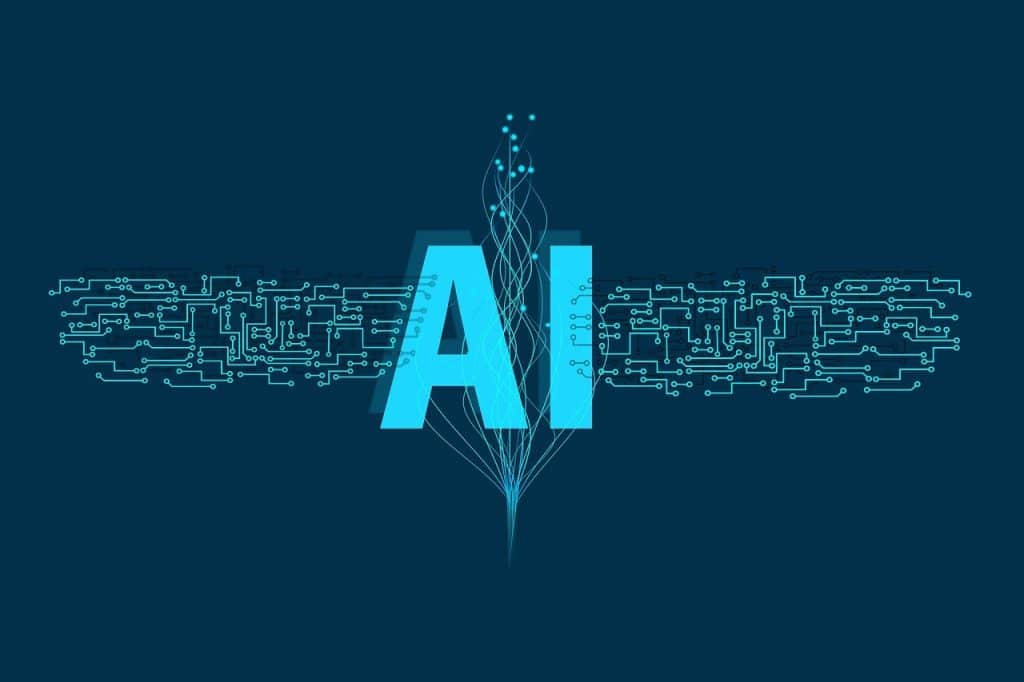
#artificialintelligence #ai #machinelearning #technology #website
AI, or artificial intelligence, is springing up everywhere; it’s the talk of the town these days. And as is true with any new toy, it has grabbed the attention of everyone. There are several AI-powered content generators that make it easy to create content with just a few clicks of a mouse, but is this good for your website?
In this article
- Is AI Really Intelligent?
- AI Is Limited By The Data Used To Train It
- AI Isn’t Really New
- The Dangers Of AI
- How Does This Relate To Your Website?
- Original Content Examples
- Original Content Maintenance Plan Recommendations
Is AI Really Intelligent?
AI is not really intelligent, regardless of how they may want to sell it in the media. It is not a thinking being, capable of making decisions, solving complex problems, or creating anything on its own. Rather, AI is nothing but computer software that is programmed by humans to “appear” intelligent. AI is nothing more than a complex set of algorithms and instructions, programs that determine the rules it must follow, terabits of information with trillions of parameters programmed into it. The content provided by AI systems are just previously written information, so what appears to be intelligence is actually its ability to rapidly scour the information it has and present it in a useful and relevant manner. For this reason, some have referred to AI as auto-complete on steroids.
This means that AI cannot think or reason for itself, though it may appear to; it can only work within the confines of its programming. It isn’t capable of learning on its own or making its own decisions. It is simply a tool programmed by humans and will often take on the biases, prejudices, or assumptions of the human that programmed it.
AI Is Limited By The Data Used To Train It
AI systems learn to make decisions based on training data. The quality of the data can affect the AI’s performance. The data used for this purpose can include biased information, or flawed data sampling. Groups, such as race, gender, or politics can be over or underrepresented in the training data, tainting the results. This may not be intentional; it is just a side effect of the biases we all have in one area or another.
This doesn’t mean that AI is necessarily bad – it’s just good to know that AI has limitations, and by understanding that, we can better understand how best to use AI, and to know not to fully rely on or trust the information given to us. Just as you wouldn’t trust something someone told you to be true unless you really knew that person, their background, and how trustworthy they were. And even if they are trustworthy, they can make mistakes, just as you or I could, and so can AI systems.
AI Isn’t Really New
AI is already in use in a wide variety of areas in our lives today. We’ve all seen or heard about the new smart cars, cars that can drive themselves, detect when you have drifted out of your lane and will steer you back in, or that can detect objects that are too close to you, slow you down or even stop you. I just saw a commercial showing a parked car that locked the doors because a child was attempting to open it while a vehicle was driving up alongside it.
AI is also used in manufacturing, helping to automate tasks, optimize production and improve quality control. AI is even in our phones, devices, and homes. Things like Alexa, Siri, and Google Home.
The Dangers Of A.I.
In the wrong hands, AI can be programmed to generate misinformation at an unheard-of rate, and on a scale that would soon be infinite. Bad actors can and will be using AI through bots to generate text that is more and more like human generated text, making it almost impossible to distinguish one from the other. AI can generate in minutes what would take a human hours or weeks to do, and therein lies the problem. Depending on the user of AI and what their motive is, they can flood the media, blog posts, or social media with their slant, biases, and opinions at a much faster and higher rate. This can make it appear as though an issue is more prevalent than it is. This can be used to drown out our opinions and our voices. And this new data will be used to further train other AI systems, further watering down the truth.
We can voice our opinion, but in the time it takes us to do so, an AI bot could have already posted hundreds or thousands of posts to the contrary, thus diminishing the opportunity to have a true debate on ideas based on facts. If you don’t think this will have much of an impact, just look how much the media today base their stories by quoting what users are saying on Facebook or Twitter (X). In fact, this is already happening today. When Elon Musk took over Twitter, he revealed how many of the posts on Twitter were created by bots – a shocking 11%.
All technology can be both good and bad for society. The internet brings the world to our doorsteps, you can find out just about anything with a quick search. It’s a source of entertainment, knowledge, and exploration. It can be good; you can read a classic novel, watch a good movie or study for your final exams. There are also many downsides to this, like unlimited access to pornography, easily accessible recipes for harmful things like pipe bombs, false-information, and a platform for cyber-bullying.
AI is no different – it can write a book or a song for you, write content for your website, help research new medication or treatments – but it can also take your job, give you false information, or create content that is very generic and impersonal.
How Does This Relate To Your Website?
It’s easy to get caught up in all the excitement of AI. Sure, it can save you money from hiring a copywriter, or save you time from having to sit down and write content yourself for all the pages on your website. Coming up with unique content for your website can be a daunting task, but therein lies the problem with AI generated content – it isn’t unique. Think about it; if you are using AI systems to generate content for your business website, who’s to say that your competitors aren’t doing the same thing? If your businesses are similar, the content that is generated by an AI system will be as well. It doesn’t care about content duplication. This will dramatically affect your SEO and could even get you banned from search engines for duplicate content.
AI doesn’t care about search engine placement. The content it generates will lack depth, originality, and won’t contain all the keywords you need for good search engine ranking.
AI won’t produce personal content. It won’t know how your business differs from that of your competitors. It won’t know how much harder you are willing to work. Furthermore, it won’t know of your expertise. It won’t know about your satisfied customers, all of which are what distinguishes you from any other business.
Your business is important to you, and your website reflects your business. You need to spend as much time developing your website as you did developing your business. Your content needs to be personal. You need to have a good keyword strategy so that search engines will rank your site higher, and more people can find you.
Shepherds Loft can help you with this process. We can help your business with all its marketing needs. Our maintenance plans may include writing original content for your home, services, portfolio or blog pages. The amount of written content and photos used on a page determines how long it takes to create original content for your website.
Original Content Examples
Home Page Example: A standard home page tells the story of your business which engages your customers. A full page of 800 to 900 words of original content with 4 to 6 images will take 4 to 6 hours to manage, write, design and develop.
Portfolio Page Example: A portfolio page is an example of your work. If you are a home builder this would be a home that you have built. With professional photography of up to 20 photos and 600 to 800 words it will take about 4 to 6 hours to create.
Event Page Example: An event page is a temporary but existential page for organizations that have social or fundraising events. Event page can take as little as an hour up to 5 or 6 hours with sponsorships.
Blog/Podcast Example: Blog articles are original, opinion/expertise driven content that can be recorded and published to podcast platforms. Blog articles need less images, 2 to 3, but more words 1200 to 1600. They don’t require design and development like regular web pages so the time to completion can be shorter if a podcast is not being created. Total time for original content and posting is 3 to 4 hours.
Original Content Maintenance Plan Recommendations
Using these example you can set your website budget by how many articles, pages, or portfolio’s you want to publish on your website per year. Publishing 2 of any kind or mix and match for as little as 1 hour a month.
To really ramp up your website and business choose a weekly maintenance plan to publish original content every 4 to 6 weeks.
Creating original content is an investment with a return. Building valuable searchable content helps the humans understand your business’s products and services while telling the robots to rank the page higher.
So while AI is becoming more and more popular and more and more people are using it, you have to be careful with it. AI does have it’s place, your website just isn’t one of them.

